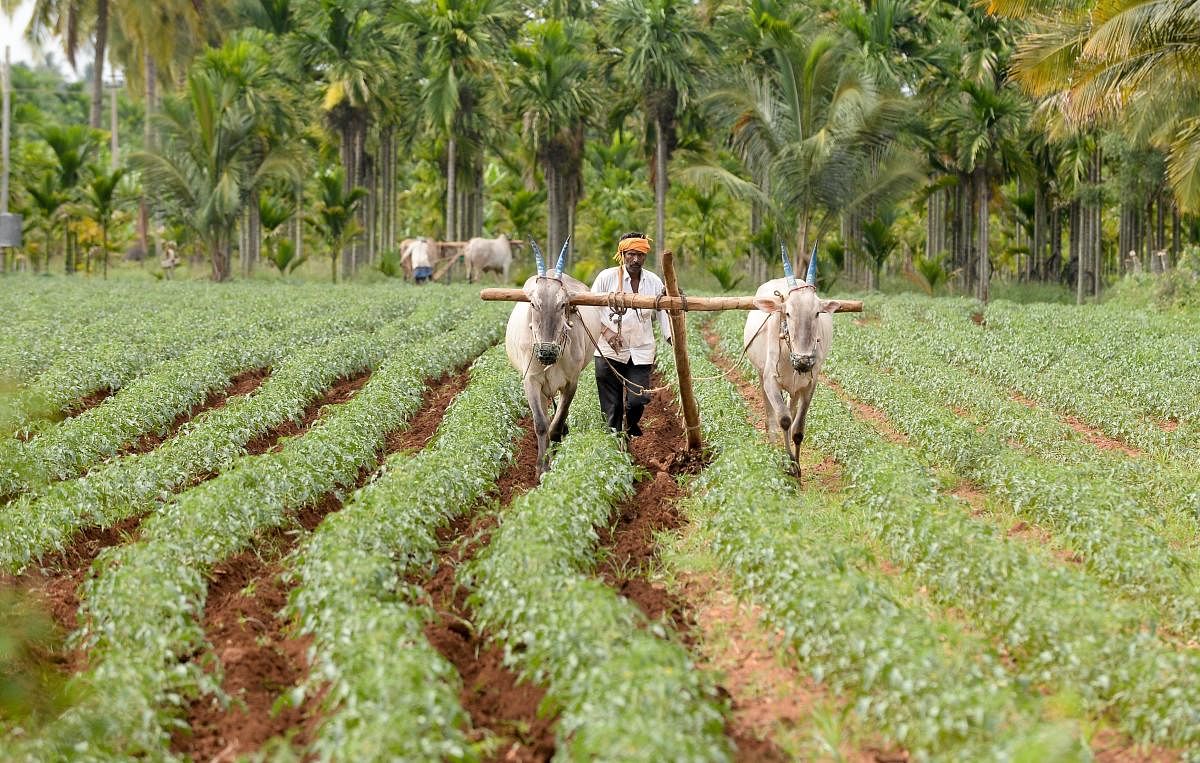Government’s announcing goodies for farmers is nothing new, but for the first time, Karnataka has proposed disincentives for those who grow the wrong crop.
If this plan comes through, then farmers who grow crops that are not recommended for their location, will be deprived of subsidies, loan waivers and other benefits.
The proposal, which is seen as a key intervention to ensure food security and promote sustainable agriculture, has been mooted by the Department of Planning, Programme Monitoring and Statistics as part of its strategy to end hunger in Karnataka, which is one of the 17 sustainable development goals.
Karnataka is divided into 10 agro climatic zones factoring in the rainfall pattern, soil type, elevation, topography and so on. The state government, through its universities of agricultural sciences, recommends farmers to cultivate crops best suited for their land based on the agro climatic zones.
Agriculture Commissioner Brijesh Kumar Dikshit backed the proposal. “But, it won’t be so easy,” he said. “Farmers will argue that they have been growing a particular crop like their ancestors did.”
Soil health card
Currently, the government provides a soil health card to advise farmers so they can decide which crop will provide the best yield.
Chief Minister B S Yediyurappa, in his 2020-21 Budget, has announced the formulation of a new policy to make farmers grow “suitable, region-wise crops”.
Since 2019, the government has provided cash benefits to encourage farmers to cultivate drought resistant crops under the Raitha Siri scheme. Farmers get Rs 10,000 per hectare for growing minor millet. This year, it has been extended to include Teff, Chia and Quinoa.
“Most farmers grow crops that are recommended, but some opt for water-intensive crops because of the commercial value,” said agrometeorologist M B Rajegowda, who currently advises the state-run Environmental Management & Policy Research Institute.
“Crop recommendations are made from a food security point of view. And if the recommendation is followed, there will be yield in 80-90% of the time,” he said, hailing the plan to disincentivise farmers who do not follow crop recommendations. “We must discourage farmers from growing the wrong crops. They won’t get economic returns. Also, we can minimise farmer suicides,” he pointed out.
Akin to the ‘ease of doing business’ index, the Planning department has proposed an “ease of farming”, which it said will “safeguard the farmer with remunerative prices and other required support to flourish the sector.”

